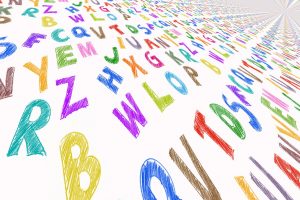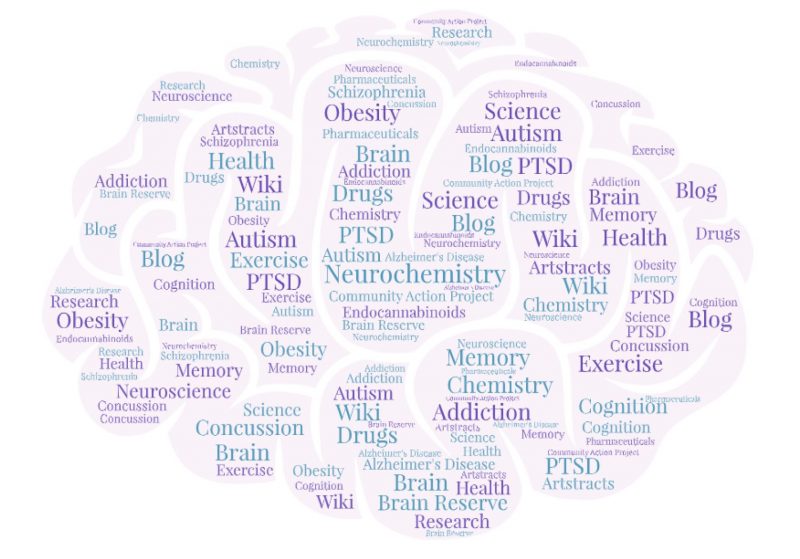If I’m being honest, I wasn’t sure what to expect when I entered my first day of neurochemistry. I knew that it was going to be a more diverse group of students than the average chemistry class, drawing from psychology, neuroscience, biology, and other majors. I had also heard that the structure of the class was not your typical lecture-learn-regurgitate-repeat style that is so often found in the college classroom. Beyond the vague understanding that this class was atypical, I expected a fairly normal semester. Neurochemistry, however, is a class taught in a very non-traditional way and this lends itself particularly well to achieving Concordia’s five goals for liberal learning.
Instill a love for learning
I have always loved learning, to the point that my constant curiosity drove my family crazy. Nevertheless, neurochemistry did a particularly good job of stoking my curiosity. Lacking in traditionally graded assignments and quizzes, we were warned from the beginning that self-driven learning is a hallmark of the course. I appreciated this method and felt like I was able to thrive. Too often courses get bogged down in completing assignments and endless busy work in the name of racking up points. By removing some of the more rudimentary points from the class, it was easier to relax and focus on working in a style that helped me learn the most. Additionally, I found the majority of topics we discussed to be very interesting. The class’ format of learning basic signaling ideas before using that understanding in the context of disease pathologies made the science more interesting. I also improved my ability to read literature articles, consider what was being presented critically and skeptically, and communicate this information to my peers concisely and accurately. By allowing for ample discussion, the class was able to learn from and teach each other. The limiting factor to this type of learning is that each student only gets out what they put in… and what their peers are willing to give. Overall, the majority of the class was dedicated to learning and improving each week, but there were occasional shortcomings, as is expected. Finally, by replacing traditional tests with neurochemistry “performances”, we were able to show the skills we acquired as the semester went on. By having to critically think about an issue without being handed the whole story, I felt like everyone was given an equal opportunity to succeed and show their skills. Rather than the grade depending on whether you remembered the MAPK pathway, it evaluated critical thinking and overall understanding, which are much more important skills in the long run. Overall, allowing students more autonomy over their education helped instill a love for learning—and neurochemistry!
I appreciated this method and felt like I was able to thrive. Too often courses get bogged down in completing assignments and endless busy work in the name of racking up points. By removing some of the more rudimentary points from the class, it was easier to relax and focus on working in a style that helped me learn the most. Additionally, I found the majority of topics we discussed to be very interesting. The class’ format of learning basic signaling ideas before using that understanding in the context of disease pathologies made the science more interesting. I also improved my ability to read literature articles, consider what was being presented critically and skeptically, and communicate this information to my peers concisely and accurately. By allowing for ample discussion, the class was able to learn from and teach each other. The limiting factor to this type of learning is that each student only gets out what they put in… and what their peers are willing to give. Overall, the majority of the class was dedicated to learning and improving each week, but there were occasional shortcomings, as is expected. Finally, by replacing traditional tests with neurochemistry “performances”, we were able to show the skills we acquired as the semester went on. By having to critically think about an issue without being handed the whole story, I felt like everyone was given an equal opportunity to succeed and show their skills. Rather than the grade depending on whether you remembered the MAPK pathway, it evaluated critical thinking and overall understanding, which are much more important skills in the long run. Overall, allowing students more autonomy over their education helped instill a love for learning—and neurochemistry!
Develop foundational skills and transferable intellectual capacities
The structure of this class also encouraged its students to develop skills that can be used outside the classroom. Communication was a big focus of the semester, which is a universal skill required across professions.  Focusing on condensing our ideas into an “and, but, therefore” structure required us to think past the acronym soup that biochemistry often gets stuck in. Beyond finding interesting narratives, being able to talk about one small technical portion of a paper on our Wednesday “speed dating” classes taught us how to be concise and brief while still getting the point across. This is a particularly valuable lesson for me, as research “elevator pitches” are very common in the world of academia, but difficult to practice and perfect.
Focusing on condensing our ideas into an “and, but, therefore” structure required us to think past the acronym soup that biochemistry often gets stuck in. Beyond finding interesting narratives, being able to talk about one small technical portion of a paper on our Wednesday “speed dating” classes taught us how to be concise and brief while still getting the point across. This is a particularly valuable lesson for me, as research “elevator pitches” are very common in the world of academia, but difficult to practice and perfect.
Develop an understanding of disciplinary, interdisciplinary and intercultural perspectives and their connections
As a biochemistry and Spanish major, this goal for liberal learning is of particular importance to me. I was able to use my group’s community action project (CAP) to combine these disciplines for have a greater impact on the community. The CAP project is already interdisciplinary in nature due to the partnership between neurochemistry and social work. However, based on my experience doing outreach in Spanish, I though it would be an exciting opportunity to focus our community outreach on the Fargo-Moorhead Hispanic community. By successfully completing an informational session in Spanish at St. Francis de Sales church, we further integrated disciplines across Concordia. By making more connections between STEM, humanities, and languages I continue to shape my perspective of the world and our community in the area.
Cultivate an examined cultural, ethical, physical and spiritual self-understanding
Understanding culture is an extremely important part of learning, whether you’re reflecting on your own culture or learning about another. Friday discussions offered an opportunity for each of us to combine our previous knowledge, experiences, and opinions with the science discussed during the week. In these discussions we were again able to move beyond the classroom and talk about real issues affecting our school, the community, the U.S., and the world overall. It was interesting to hear and learn of everyone’s different perspectives and opinions. Often times I craved discussions more rooted in research and fact but hearing personal experiences and opinions does have its own merit. Whatever the discussions focused on, having access to so many different perspectives about varied and controversial topics helped improve my own self-understanding of the world.
Encourage responsible participation in the world
In addition to encouraging interdisciplinary work, the CAP project encouraged us to move forward responsibly as we engage with our community. I think the most applicable thing that was driven home by this project was the idea of a assessing the needs of a community rather than offering a group what you think they need. Too often people with the best of intentions cause more hard then good because they fail to evaluate the community they are trying to help. In my opinion, the only way to work in the world responsibly is to recognize that we all have more to learn than we have to teach. Reaching out to different communities in the FM area demonstrated this idea to me again.
That’s All Folks

Whether looked at through the lens of liberal learning or understanding biochemical signaling pathways, it has been a semester full of learning. I have not only improved as a biochemist, but also learned a lot about communication and critical thinking, and to me that is what it means to be a liberal learner. The semester wasn’t without challenges; the CAP was full of setbacks and struggles, discussions sometimes fell short, and pathways became muddled. Nevertheless, I learned a lot this semester, including from the challenges. As I continue my education, I look forward to continuing to improve on the communication and critical thinking skills that I practiced often during this course. I am excited to weave this course into my narrative, and will continue to look beyond the brain, and beyond the classroom.
